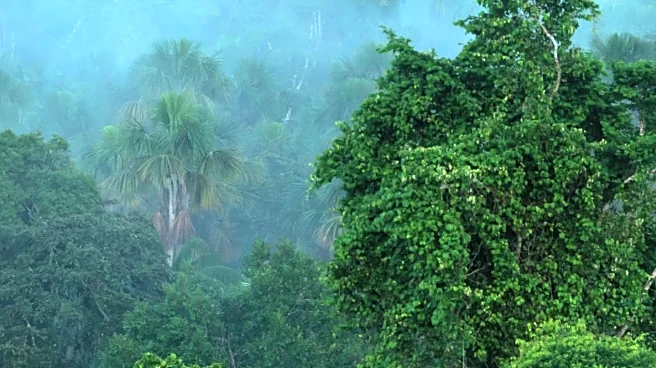What's Happening?
A study has found that regions in the Amazon with intermediate forest degradation have higher malaria risks. Areas with 50% deforestation near residential zones increase human-mosquito contact, leading to higher infection rates. The research emphasizes
the need for integrated vector control and forest conservation strategies. The study, conducted in Cruzeiro do Sul, Acre, highlights the persistent association between deforestation and malaria transmission, urging targeted interventions to mitigate the disease's spread.
Why It's Important?
The findings underscore the complex relationship between environmental changes and public health. Deforestation not only impacts biodiversity but also exacerbates health risks like malaria. Understanding these dynamics is crucial for developing effective disease control strategies and promoting sustainable land use practices. The study's insights can inform policy decisions and conservation efforts, aiming to balance ecological preservation with human health needs.
Beyond the Headlines
The study suggests that maintaining biodiversity in conserved forest areas could make environments less favorable to malaria vectors. This approach, combined with improved treatment protocols, could enhance malaria elimination efforts. The research highlights the interconnectedness of environmental and health issues, advocating for sustainable initiatives that provide income for residents while preserving natural habitats.

















